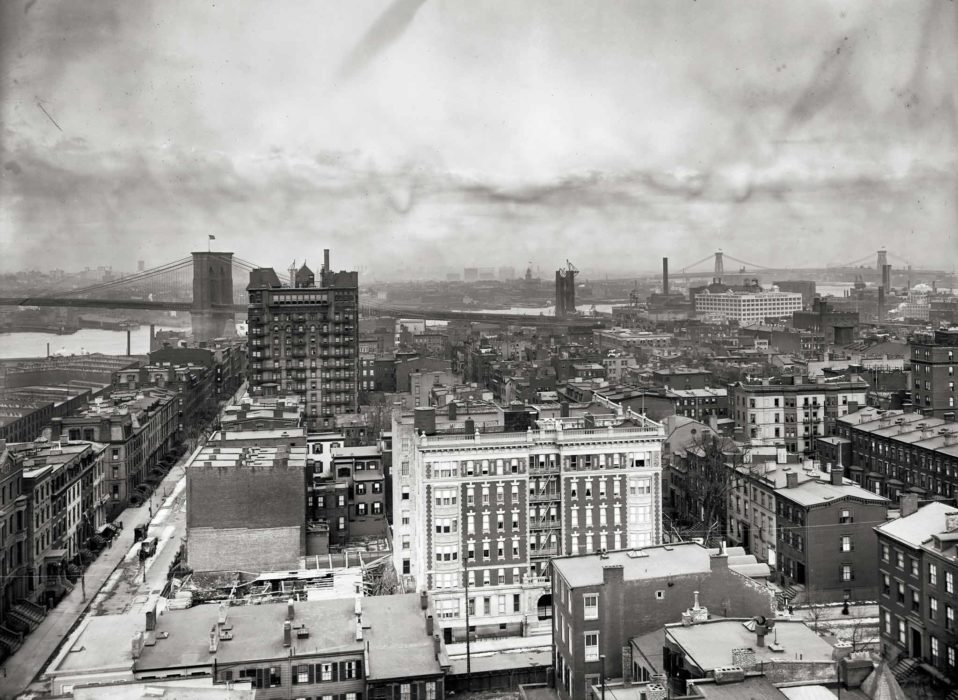THE CONTROVERSY JUST WOULDN’T go away. The Reverend Percy Stickney Grant had started it all by seating ‘Abdu’l-Bahá in the Bishop’s chair at his Episcopal Church of the Ascension on April 14. It was now June, but the Churchman, the official publication of the Episcopal Church, seemed determined to flog the subject to death.
Reverend John H. Melish had written to the Churchman to defend Grant. The teachings of ‘Abdu’l-Bahá, Melish argued, were essentially Christian, and that ‘Abdu’l-Bahá, himself, was “‘by nature Christian,’ as his whole doctrine is that of love.” On June 13, the Church’s response showed up in the daily edition of the Independent.
“The question is,” The Churchman had printed, “What is the law of the Church, not, What is the character of Abdul Baha or the nature of his teaching.”
The Independent agreed. “Dr. Melish cannot defend himself,” its columnist wrote, “except by the bold reply of Peter to the Sanhedrim which forbade him to preach in the temple.” The Independent seemed to be saying that Episcopal pastors who welcomed ‘Abdu’l-Bahá to their churches could only justify it if they were willing to claim that ‘Abdu’l-Bahá was equal to Christ.
But Brooklyn’s churches didn’t see it that way at all. John Howard Melish was one of their own. He was the Rector of the Church of the Holy Trinity, an Episcopal Church on the northwest corner of Clinton and Montague Streets in Brooklyn Heights, a short walk west from Columbus Park and just south of the Brooklyn Bridge. The surrounding churches made their response clear on Sunday, June 16, 1912.
Just before 11:00 a.m., ‘Abdu’l-Bahá pulled up in his carriage to the Fourth Unitarian Church on Beverley Road in Flatbush, southeast of Prospect Park. The church had posted a large sign outside in bold letters:
“THE GREAT PERSIAN PROPHET, HIS HOLINESS ‘ABDU’L-BAHÁ, WILL SPEAK AT 11:00 A.M. IN THIS CHURCH ON THE 16TH OF JUNE.”
Later that afternoon, ‘Abdu’l-Bahá addressed the congregation at a second church in Brooklyn. When the Rev. Dr. S. Parkes Cadman welcomed ‘Abdu’l-Bahá to his Central Congregational Church at 25 Hancock Street, he made sure that no one among the congregation could mistake his own position on the issue.

“I should like to say,” he emphasized at the outset, “that it is with great pleasure I ask Abdul-Baha to speak to us tonight.”
“Christian people,” he told his congregation, “can afford to be absolutely free, not tolerant — I do not care for that word — but free and catholic in their extension of liberty and courtesy to other people.”
For Cadman, it wasn’t merely religious regulations that should determine if ‘Abdu’l-Bahá should be invited to speak in a Christian Church, but the Christian spirit of charity.
“Abdul-Baha our Elder Brother comes to us from the far East which has always been the birthplace of the world’s great religions . . . and I will leave you in the hands of this visitor whom we are proud to have with us.”
In tomorrow’s feature: ‘Abdu’l-Bahá addresses the Central Congregational Church in Brooklyn, and tackles the controversy head on.






